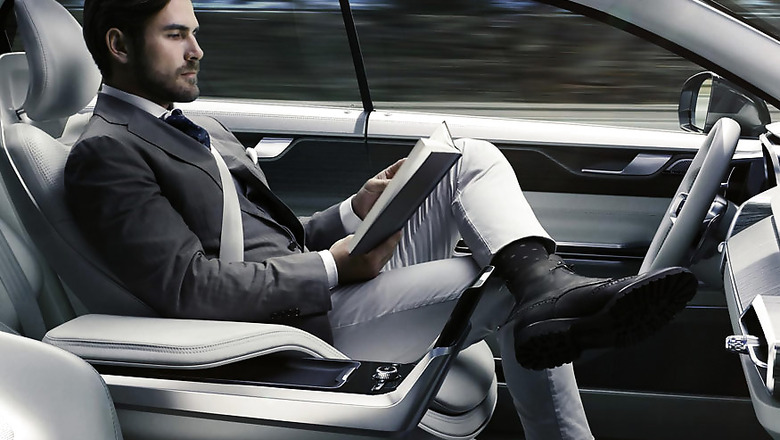
views
Scientists have developed novel driverless car technologies which they claim could lead to a world without traffic lights and speeding tickets. The researchers at the University of Delaware in the US also believe the innovations will bring about the development of driverless cars that use 19 to 22 percent less fuel. Connected and automated vehicles could adjust to driving conditions with little to no input from drivers, researchers said.
When the car in front of you speeds up, yours would accelerate, and when the car in front of you screeches to a halt, your car would stop, too, they said. Andreas Malikopoulos from the University of Delaware uses control theory to develop algorithms which he says will enable this technology of the future.
"We are developing solutions that could enable the future of energy efficient mobility systems," said Malikopoulos. "We hope that our technologies will help people reach their destinations more quickly and safely while conserving fuel at the same time," he said.
Malikopoulos and collaborators from Boston University in the US developed a solution to control and minimise energy consumption in connected and automated vehicles crossing an urban intersection that lacked traffic signals.
Published in the journal Automatica, the research used software to simulate results and found that the framework allowed connected and automated vehicles to conserve momentum and fuel while also improving travel time.
Malikopoulos and colleagues from the University of Virginia in the US formulated a solution that yields the optimal acceleration and deceleration in a speed reduction zone, avoiding rear-end crashes.
Simulations suggest that the connected vehicles use 19 to 22 per cent less fuel and get to their destinations 26 to 30 per cent faster than human-driven vehicles, according to the research published in the journal IEEE Transactions on Intelligent Transportation Systems.




















Comments
0 comment